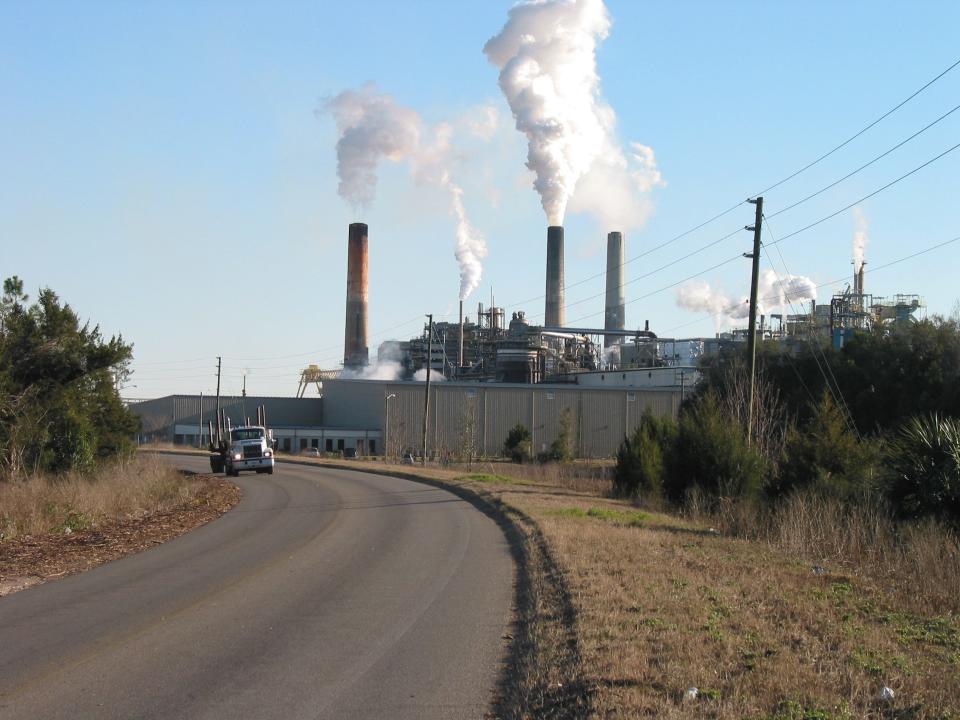Ripple effect of Georgia-Pacific cellulose mill closing will be far-reaching
Your mobile phone screen may have started out as a North Florida pine tree. A Florida mill that converts wood into cellulose for phone screens and other products is closing. Your next phone may have a plastic screen or some other inferior product. Not great for you and terrible for the local people who make the cellulose and manage the forests.

Georgia Pacific is the current owner of the Taylor County mill that produces some of the best cellulose in the world. Many people are not aware that the wood products industry is one of Florida’s economic engines and is the reason that Floridians enjoy millions of acres of carefully managed forests.
When Georgia Pacific closes the cellulose plant, more than 500 workers will lose their jobs. But that is only the beginning of the tragedy. Hundreds of small businesses support the mill. Tree farmers, loggers, truckers, and equipment dealers are just some of the many family operations that will lose their biggest and perhaps only customer.

The environment loses too. A stable network of planted pine plantation owners will be faced with the question of what to do with their land. Forests, even commercial forests, are generally good for protecting water resources. In other parts of Florida, we’ve seen forests cleared for peanut farms and irrigated cow pastures. These uses increase water pollution and deplete the aquifer.
The forests that provide trees for the cellulose production are in the watershed of the Big Bend Aquatic Seagrass Preserve – 1 million acres of seagrass beds. This highly productive ecosystem benefits greatly from the fresh water that seeps off the pinelands, feeds streams and recharges groundwater. All that freshwater entering the Gulf of Mexico helps create healthy habitat for scallops, oysters, and game fish.
It is ironic that Georgia Pacific made major investments in cleaning up the mill’s wastewater, which was at a time infamous for its impact on the environment. Now that those water quality investments are made, forestry and cellulose production can exist with clean and healthy ecosystems. But will sustainable forestry continue if there is no mill to take the trees to?
Elsewhere in Florida treetops have been replaced with rooftops. Florida needs a balanced economy built on three legs of tourism, agriculture, and manufacturing. The loss of the Georgia Pacific plant removes two of the three legs. Quality cellulose manufacturing with its skilled jobs and forestry’s rural workforce are interdependent.
Wood products are renewable. Trees remove carbon pollution from the air. With Florida’s abundant sunlight and rainfall, planted pines are ready for harvest in 20 years. Well managed forests also help control fires and floods. Forests that are not regularly thinned build up fuels increasing risks of dangerous wildfires.
Forests provide habitat for wildlife. From migrating birds to wild turkey, quail, deer, and black bears, many favorite Florida animals thrive in commercial forests. Most forest landowners allow hunting, and many hunters enjoy access to private forests, which supplement Florida’s publicly owned hunting lands.
The Florida Legislature recently endorsed the Florida Wildlife Corridor, a long contiguous stretch of public and private lands extending from the Everglades to the Panhandle. One of the best ways to fulfill the ambitions of that green vision is to preserve North Florida’s working forests.
And the best way to keep Florida’s tree farmers growing trees is to have a market for wood products. Our forests produce abundant pulp for paper along with lumber and plywood. But the most valuable local wood product is cellulose. Found in everything from diapers to air conditioning filters, cellulose is a renewable and essential product.
In Perry, Florida near where the Georgia Pacific plant makes cellulose, the production supports more than 500 good factory jobs and thousands of jobs for people who grow and bring the wood to the mill.
Some Florida leaders have talked about training the laid off mill workers. That is a secondary approach. The Governor, Commissioner of Agriculture, the Legislature and Enterprise Florida should be fighting to keep the cellulose plant operating. They should be fighting to save existing jobs. Retraining workers is a poor substitute for keeping good jobs.
In a world that will not stop needing mobile phone screens, diapers, and filters, let’s not let one of the nation’s best cellulose mills stop production. If Georgia Pacific doesn’t want to operate the plant, the State of Florida should be working to bring in a company that will.
Workers don't want to be retrained for another job. They want the job they are already trained to do in the community where they already live.

Eric Draper is retired director of the Florida Park Service and was co-chair of the Working Forests Partnership.
JOIN THE CONVERSATION
Send letters to the editor (up to 200 words) or Your Turn columns (about 500 words) to letters@tallahassee.com. Please include your address for verification purposes only, and if you send a Your Turn, also include a photo and 1-2 line bio of yourself. You can also submit anonymous Zing!s at Tallahassee.com/Zing. Submissions are published on a space-available basis. All submissions may be edited for content, clarity and length, and may also be published by any part of the USA TODAY NETWORK.
This article originally appeared on Tallahassee Democrat: Effect of Georgia-Pacific cellulose mill closing far-reaching

